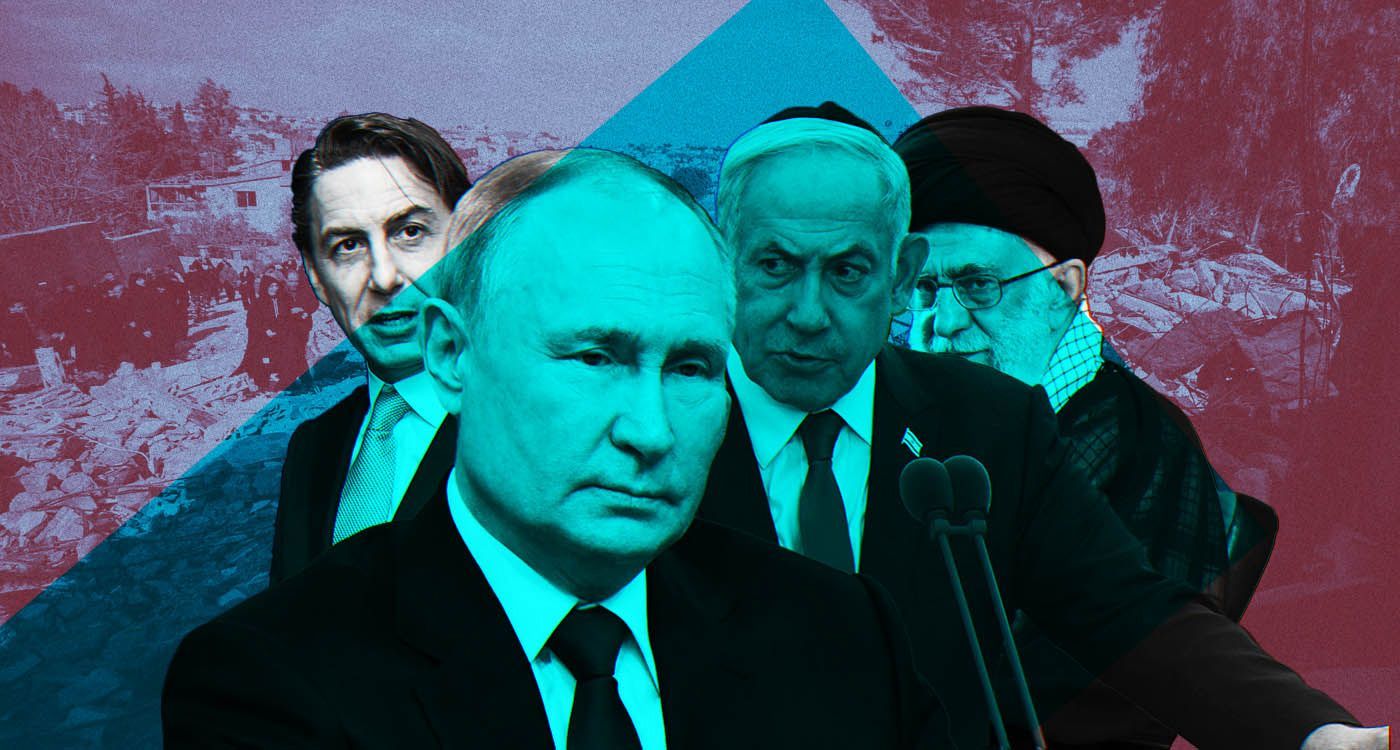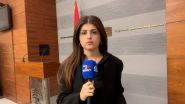
Caught in the crossfire between Israel and Iran—through its proxies Hamas and Hezbollah—Lebanon is plunging deeper into uncertainty. Under the looming threat of military escalation, the country, now stripped of its ability to influence its own fate, has become the focal point of numerous international negotiations, which remain ambiguous and struggle to gain traction.
A stream of envoys and diplomats, both Eastern and Western, has been arriving in Beirut, only to encounter significant hurdles, chief among them the absence of decisive political leadership in response to the current crisis. The critical signal that could reshape the regional landscape has yet to be given, with each actor playing its political hand to serve their own interests.
Once again, Lebanon, bereft of its sovereignty, serves as the battleground where external forces vie for a share of the post-war spoils. With Russia’s role at the Lebanon-Syria border, the unconfirmed potential visit of US envoy Amos Hochstein, and the conflicting prospects of a truce and Lebanon’s presidential election versus the widening conflict, the stakes are growing, and the situation remains steeped in total uncertainty.
Conflicting Narratives?
In recent days, some international actors have hinted at a temporary stabilization in Lebanon, particularly in anticipation of Donald Trump’s possible return to the White House. Yet, sharp contradictions are emerging in the political and military rhetoric, especially between Israeli and Iranian/Hezbollah positions. These paradoxes, while “seemingly contradictory,” are not necessarily in conflict, as asserted by David Rigoulet-Roze, a researcher at the French Institute for Strategic Analysis (IFAS) and an associate at the Institute for International and Strategic Relations (IRIS), and the editor-in-chief of Orients Stratégiques, published by French publishing house, L’Harmattan.
On Sunday, the Israeli Armed Forces Chief of Staff approved “the expansion of ground operations in southern Lebanon,” while Israel’s Defense Minister, Israel Katz, declared Hezbollah “defeated” and stressed that the Hebrew State has now the opportunity to “reap the benefits of this victory by reshaping Lebanon’s security situation.” He added that “if the international community takes the necessary steps to facilitate the election of a Lebanese president, the entire course of events could change.” Meanwhile, Israel’s Foreign Minister, Gideon Saar, mentioned on Monday that there had been “some progress” toward a potential ceasefire in Lebanon, in coordination with American efforts.
“Expanding ground operations in the south is not at odds with these statements,” explains Professor Rigoulet-Roze. From Israel's standpoint, it is a strategic move to apply pressure and maximize the gains against Hezbollah.” For the Israelis, “negotiations are not an unconditional withdrawal but rather a strategic maneuver to apply political pressure within the framework of discussions, chiefly led by US envoy Amos Hochstein,” who is working to secure a prolonged truce to facilitate political dialogue and address the humanitarian crisis.
Truce or Not?
On October 30, a proposal for a 60-day truce between Israel and Hezbollah was presented, contingent on several conditions. According to the Saudi news outlet al-Hadath, following discussions with caretaker Prime Minister Najib Mikati and Parliament Speaker Nabih Berri, Hezbollah reportedly accepted two of Israel’s main demands for a ceasefire: a withdrawal beyond the Litani River and disarmament in southern Lebanon. However, Hezbollah rejected the Hebrew State’s request for operational flexibility, which would allow Israel to monitor the enforcement of these demands. “The plan calls for a 60-day transition period, during which Hezbollah's withdrawal (still to be determined) would allow the Lebanese Army Forces (LAF) to deploy in southern Lebanon and verify the dismantling of Hezbollah’s infrastructure before Israel withdraws,” explains Professor Rigoulet-Roze.
Another key objective for Israel is preventing arms transfers. Israel's crucial aim is to halt arms transfers, particularly from Syria to Hezbollah, making Russia's involvement pivotal in this regard.
Russia’s Role at the Syrian Border
A central issue in the negotiations regarding Lebanon is the management of weapons transfers to the country. Concerned about the threat posed by Hezbollah, Israel has expressed significant worry about arms shipments from Syria to the militia. In response, Russia has proposed assuming a key role in overseeing the Syrian-Lebanese border, ensuring heightened surveillance to prevent such activities.
“Contrary to popular belief, the relationship between Russian President Vladimir Putin and Israeli Prime Minister Benjamin Netanyahu is not as adversarial as some might think. There has never been any major dispute with Russia,” notes Professor Rigoulet-Roze. “It's also important to highlight the tacit agreement, which has never been questioned, that Syria's air defense system is effectively segregated and not integrated with Damascus,” he adds. “The Russians have never intervened to protect Syria from Israeli airstrikes, nor have they attempted to intercept them.”
For Moscow, the priority is to maintain its access to the Mediterranean and protect its strategic bases: the naval base in Tartous, located about 25 kilometers north of the Syrian-Lebanese border, and the airbase at Hmeimim, southeast of Latakia. “However, total involvement in the current conflict could cost Russia the fall of Bashar al-Assad's regime,” warns Professor Rigoulet-Roze.
A potential removal of the Syrian president, which could threaten the presence of Russian bases in Syria, would place Moscow in a position to act as a mediator in this matter, alongside Hochstein, who is working towards easing tensions in Lebanon. The American envoy is expected to visit Beirut soon, with implicit approval from Donald Trump. “Hochstein is still set to travel to Lebanon,” says Fadi Assaf, co-founder of Middle East Strategic Perspectives (MESP), specializing in international affairs, defense, and security in the Middle East in particular. “He hopes to conclude his mandate by delivering a diplomatic victory for former President Joe Biden, especially as the new administration is unlikely to oppose it,” he adds. To achieve this, Hochstein is exploring the possibility of expanding the scope of UN Security Council Resolution 1701, which he had previously deemed “insufficient” to end the conflict last October.
Implementation of Resolution 1701: By What Means?
According to Assaf, “Until the Trump administration transition, it's essentially 'business as usual' for Israel.” In this context, the Hebrew State has largely taken on the manu militari implementation of Resolution 1701, as well as other UN Security Council resolutions, including Resolution 1559, which is referenced in the preamble of Resolution 1701.
Israel’s goal is to enforce these provisions—chiefly the disarmament of militias and the deployment of the LAF and peacekeepers along the border—through both military force and diplomatic channels. “Its military campaign continues in Lebanon and Syria, and its diplomatic efforts are broadening,” Assaf explains. “Alongside operations in Lebanon that may intensify (the military Chief of Staff will wait for the political approval), Benjamin Netanyahu is preparing for closer coordination with the incoming administration, while seeking Russia’s cooperation, though its role may ultimately be limited to a diplomatic one,” he notes.
On the battlefield, Hezbollah is fighting for its political survival. “It hopes to secure a truce on which it can build political momentum. It will never admit defeat,” states Assaf. He highlights the debacle of Hezbollah in the south, which stands in stark contrast to the effective propaganda that portrays pro-Iranian fighters as having control of the area. This failure unfolded despite Iran’s efforts to prevent the group’s sudden collapse. Simultaneously, recent targeted disruptions have destabilized its logistical and financial networks, while rising public pressures fueled by the widespread destruction, and its severe social and economic consequences continue to mount.
“Hezbollah will wait for the right moment to declare a ‘victory’ that will prevent its political marginalization. Despite the defeat, its only goal is to hold on as long as possible, until Israel agrees to negotiate a ceasefire,” argues Assaf.
At present, conditions are not favorable for a resolution, as each party is focused on maximizing “gains.” Meanwhile, and given the rivalries currently unfolding, the United Nations' role has diminished, becoming, according to Professor Rigoulet-Roze, ”a mere sounding board for sovereignties that shift according to geopolitical interests.” In brief, Lebanon remains in an extremely volatile state, and the ongoing negotiations face several obstacles. While Russia’s role as a guarantor of arms control is a pragmatic approach to preventing escalation, contradictory statements regarding the truce and the widening of Israeli operations complicate the country's immediate future. As for Hochstein’s mission, it could be thwarted by the harsh military realities on the ground. Lebanon stands at a crossroads, where diplomatic aspirations and military realities are likely to collide for an undetermined period.




Comments